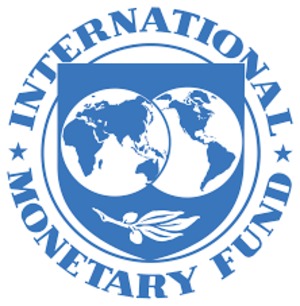The International Monetary Fund (IMF) with financial support from the Government of Belgium is offering free online course on Macroeconomic Forecasting. Through this MOOC students will learn to predict macroeconomic variables such as inflation, growth or consumption.
Applicants having background in statistics and economics at the undergraduate level are eligible for this eight weeks course. The course will start on September 14, 2016.
Course At A Glance
Length: 8 weeks
Effort: 6-8 hours pw
Subject: Economics & Finance
Institution: International Monetary Fund (IMF) and edx
Languages: English
Price: Free
Certificate Available: Yes, Add a Verified Certificate for $25
Session: Starts on September 14, 2016
Providers' Details
The International Monetary Fund (IMF) is an international organization of 188 countries, working to foster global monetary cooperation, secure financial stability, facilitate international trade, and promote high employment and sustainable economic growth. The IMF supports its membership by providing: policy advice to governments and central banks; research, statistics, forecasts, and analysis; loans to help countries overcome economic difficulties; and technical assistance and training to officials to help countries improve the management of their economies.
About This Course
In this macroeconomics course, you will learn to predict macroeconomic variables such as inflation, growth or consumption, and to create statistical models in economics and use them to predict responses to economic policy.
You will learn from hands-on demonstrations of model-building, forecasting and policy analysis, using data sets from a wide variety of countries. During this economics course, you will be provided with a free temporary license to EViews – a popular software for estimating and simulating forecasting models that has become a standard in central banks and academic institutions worldwide.
Why Take This Course?
This is a free online course. This MOOC will be offered with Video Transcripts in English. Applicants can get a verified certificate.
Learning Outcomes
- Evaluation of macro econometric models
- Forecasting of uncertainty and forecasting for policy analysis
- Properties of time series data and model design
- Dynamic specification and the use of vector auto-regression models (VARs) and error correction models (VECMs)
Instructors
Sam Ouliaris
Sam Ouliaris is Chief of the Internal Training Unit in the IMF's Institute for Capacity Development, which is responsible for the training of IMF economist staff.
Reda Cherif
Reda Cherif is an Economist in the IMF's Institute for Capacity Development. He joined the Fund in 2008, working in the Fiscal Affairs and the Middle-East and Central Asia Departments before joining ICD.
Adolfo Barajas
Adolfo Barajas is a Senior Economist at the IMF's Institute for Capacity Development. He has a Ph.D. in economics from Stanford University, specializing in finance and development and open economy macroeconomics.
Adina Popescu
Adina Popescu is an Economist at the Institute for Capacity Development. She worked on assignments in the European Department on both program and surveillance countries.
Jorge Restrepo
Jorge Restrepo, a national of Chile and Colombia, is a Senior Economist in the IMF's Institute for Capacity Development. Prior to joining the Institute in 2010, he worked for 10 years at the Central Bank of Chile's Economic Research Department, and also worked at the Central Bank of Colombia.
Dmitry Plotnikov
Dmitry Plotnikov is an economist in the IMF's Western Hemisphere Department. At the time of course production, he worked in the Institute for Capacity Development in the European and Middle Eastern Division.
Mikhail Pranovich
Mikhail Pranovich is an economist at the Joint Vienna Institute. Previously he headed the Monetary Analysis and Forecasting Division at the National Bank of Belarus, and worked as an economist at the Resident Representative Office of the IMF in Minsk and at the Regional IMF Office for Central and Eastern Europe in Warsaw.
Patrick Healy
Patrick Healy is a U.S. national and former Research Analyst at the IMF Institute for Capacity Development. Prior to starting at the IMF, he studied economics and government at Dartmouth College.
Carl Sandberg
Carl Sandberg, a Swedish national, is a Research Analyst in the IMF's Institute for Capacity Development. Prior to joining the IMF, he studied economics and global affairs at Yale University.
Requirements
A background in statistics and economics at the undergraduate level is assumed.
Course Format
Module 1: Course Introduction
Module 2: Introduction to EViews
Module 3: Statistical Properties of Times Series Data
Module 4: Forecast Uncertainty and Model Evaluation
Module 5: Vector Auto-Regressions (VARs)
Module 6: Cointegration and Vector Error Correction Models (VECMs)
Module 7: Evaluating Regressions Models
Module 8: Final Assignment: Bringing It All Together
How To Join This Course
- Go to the course website link
- Create an edX account to SignUp
- Choose “Register Now” to get started.
- EdX offers honor code certificates of achievement, verified certificates of achievement, and XSeries certificates of achievement. Currently, verified certificates are only available in some courses.
- Once applicant sign up for a course and activate their account, click on the Log In button on the edx.org homepage and type in their email address and edX password. This will take them to the dashboard, with access to each of their active courses. (Before a course begins, it will be listed on their dashboard but will not yet have a “view course” option.)
